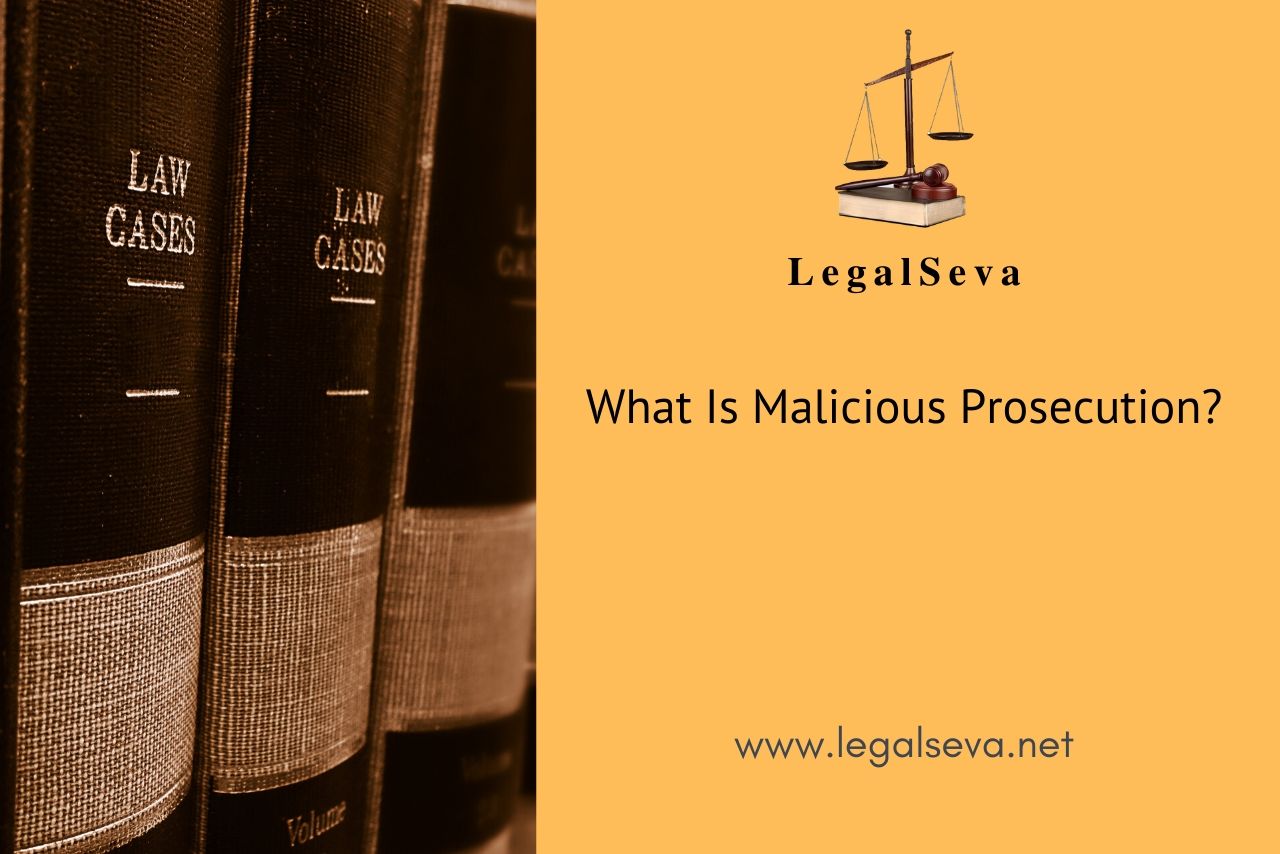Last Updated on June 21, 2024 by Satish Mishra
Malicious prosecution includes certain proceedings that are instituted maliciously and this may include malicious arrest, malicious bankruptcy, malicious execution, and malicious search. Malicious prosecution is basically related to the malicious intention of failed criminal proceedings without any reasonable or possible cause against another.
Malicious prosecution is a judicial proceeding that can be carried on by one person against another with some wrongful motive without any reasonable cause of justification.
The term ‘malicious prosecution’ was defined in the case of ‘West Bengal State Electricity Board v. Dilip Kumar Ray’, in the following words:
“A judicial proceeding instituted by one person against another, from wrongful or improper motive and without probable cause to sustain it is a malicious prosecution.A malicious prosecution consists in maliciously causing process to be issued, whereas abuse of process is the employment of legal process for some purpose other than that which it was intended by the law to affect the improper use of a regularly issued process.”
Also Read- KNOW ABOUT SECTION 188 IPC
What are the essential elements of malicious prosecution?
Following essential elements are required by the plaintiff to prove in a suit for damages of malicious prosecution:
- The defendant acted maliciously.
- Prosecution by the defendant.
- Absence of reasonable and probable cause.
- Termination of proceedings in favor of the plaintiff.
- Suffering from damages by the plaintiff as a result of the prosecution.
Also Read- FIR IN CHANDIGARH PANCHKULA MOHALI ZIRAKPUR
The defendant acted maliciously:-
To claim for the damages for malicious prosecution, the plaintiff is required to prove that the defendant acted maliciously while prosecuting him and not with the intention of bringing the law into effect. Malice can be any wrong purpose that motivates the prosecutor to gain an advantage.
In the case of ‘Bank of India v. Lakshmi Das’,the Court restated the Indian position that probable and reasonable cause must be proved. The proceedings complained by the plaintiff must have been initiated in a malicious motive but not for the furtherance of justice.
It is not necessary for the defendant to act maliciously right from the moment the prosecution. If the prosecutor was innocent in the beginning but becomes meanon the later stage, an action for malicious prosecution can be there.
Also Read- NRI POLICE COMPLAINTS IN PUNJAB AND HARYANA
Prosecution by the defendant
The very essential element which is required to be proved in a suit for damages for malicious prosecution is that the plaintiff was prosecuted maliciously first by the defendant.
In the case of ‘Khagendra Nath v. Jacob Chandra’, it was held that merely bringing the matter before the executive authority did not amount to prosecution and, therefore, the action for malicious prosecution could not be maintained. Further, the departmental inquiry by a disciplinary authority cannot be called as prosecution.
Also Read- REGISTRATION OF FIR- GUIDE
Absence of reasonable and probable cause
The plaintiff is required to prove that the defendant prosecuted him without any reasonable and possible cause.
In the case of ‘Antarajami Sharma v. Padma Bewa’, it was said that in a case of damages for malicious prosecution, the onus of proof of the absence of reasonable and probable clause lies on the plaintiff only.The existence of a reasonable and probable cause is of no importance if the prosecutor prosecuted the case in ignorance of it.
Also Read- CHEATING 420 IPC AS AN OFFENCE IN INDIA
Termination of proceedings in favor of the plaintiff
In a suit for damages for malicious prosecution, it is essential that the proceedings were terminated in favor of the plaintiff. Termination in favor of the plaintiff means the absence of a judicial determination of the guilt of the plaintiff. No action against anyone can be brought when the proceedings are pending.
Suffering from damages by the plaintiff as a result of the prosecution
It is another essential element which is required to be proved. In a claim for prosecution, the plaintiff can thus claim damage to the plaintiff’s reputation, damage to the plaintiff’s person, and damage to the plaintiff’s property.
Also Read- HOW TO MAKE A COMPLAINT TO MAGISTRATE
Malicious Civil Proceedings
It was held in the case of ‘Darbhanga Thakur v. Mahabir Prasad’,that unlike malicious criminal prosecution, no action can be brought as a general rule in the case of civil proceedings.Also, in another case of ‘Genu Ganapati v. Bhalchand Jivraj’,the following essentials were established to be proved as malicious abuse:
- Proving the malice
- The plaintiff will have to prove that the defendant acted without a reasonable clause.
- The plaintiff will also have to prove that such civil proceedings have interfered with his liberty or that such civil proceedings have affected or likely to affect his reputation.
Also Read- GETTING DIRECTIONS FROM HIGH COURT IN CRIMINAL CASE
Conclusion
The malicious proceedings are those processes that were initiated with malicious intent. Its elements need to be established and are necessary for the plaintiff to prove in a suit for damages for malicious prosecution. However, on the basis of the other facts and circumstances, the Court has a right to decide whether the suit was filed maliciously or not.
For your specific case advice, you may contact top/best/expert Criminal Lawyers/Advocate in Chandigarh Panchkula Mohali Zirakpur Derabassi Kharar Mullanpur New Chandigarh.
This post is written by Damini Aggarwal (PU). For more info, please dial 99888-17966.
